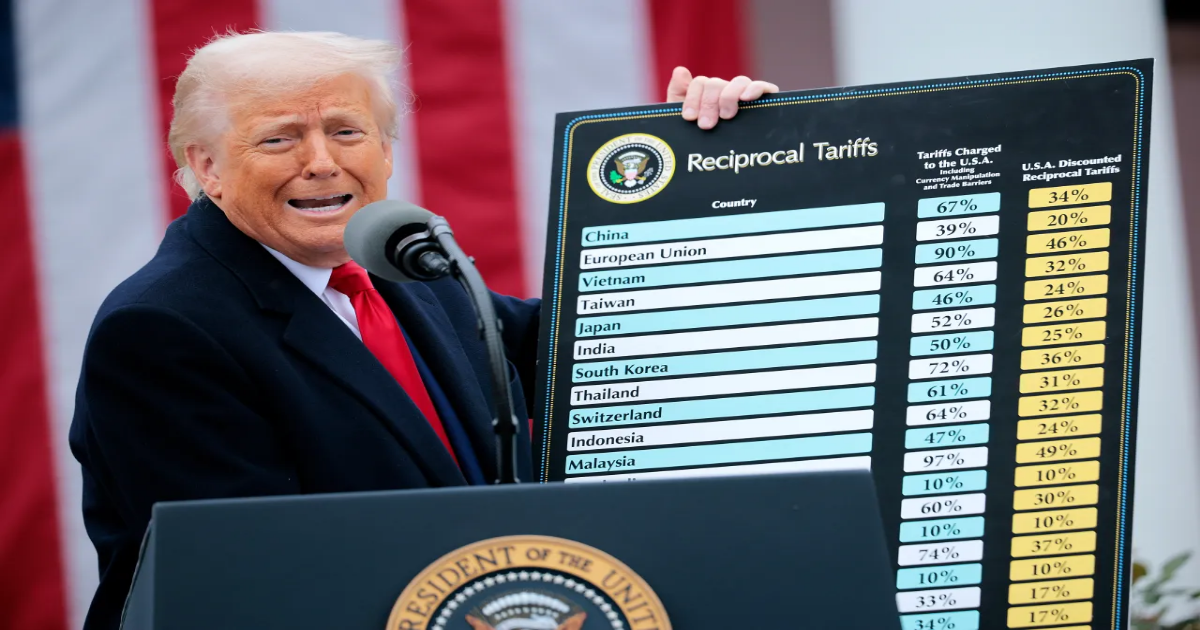President Donald Trump’s widespread tariffs could significantly impact California’s exports, such as automobiles, computer equipment and semiconductors, according to a study from the Public Policy Institute of California.
About 16% of California’s GDP in 2024 — $675 billion — came from the trade of physical goods, according to the report.
Manufactured goods account for 87% of California’s total exports, valued at $159 billion. The top sectors include computer equipment, semiconductors, aerospace products and instruments. The state also leads the U.S. in agricultural exports, totaling $15 billion. The top products include nuts, processed fruits and vegetables, and fresh produce.
California exports 37% of its goods to Canada, Mexico and China and imports 41% from those countries.
“Tariffs on imported goods may have direct effects on consumers, producers, and exporters in the state,” wrote Daniel Payares-Montoya, a research associate for the institute.
A 10% tariff on imports from U.S. trading partners begins Saturday, while additional duties on about 60 countries will start April 9.
While speaking at the White House, Trump held up a chart showing that the United States would charge a 34% tax on imports from China, a 20% tax on imports from the European Union, 25% on South Korea, 24% on Japan and 32% on Taiwan.
Mexico and Canada are exempt from Trump’s latest tariffs, but the 25% tariffs that Trump levied on both countries last month will remain intact.
According to the San Francisco Chronicle, tariffs on Canadian lumber could increase prices or even cause shortages of toilet paper and paper towels. A key product used to make toilet paper and paper towels, northern bleached softwood kraft pulp, is primarily sourced from Canada and doesn’t have an American substitute.
Clothing and textiles will also be affected, according to the Yale Budget Lab.
Homebuilders are also warned that tariffs could make financing and completing projects even more challenging, especially as officials focus on rebuilding Altadena, Malibu and Pacific Palisades after January’s deadly wildfires.
The tariffs are meant to crack down on other countries for unfair trade practices, but Wall Street firms are now forecasting a 50% chance of a recession on the horizon. These estimates are likely to change soon, reflecting the ongoing economic uncertainty.
